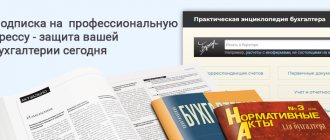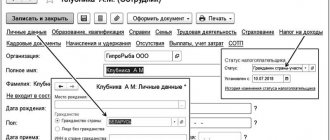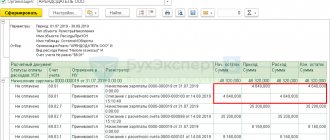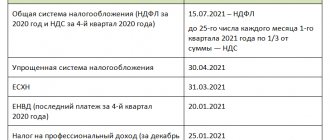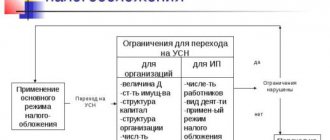When sending an employee on a business trip, the company must provide him with money to cover the necessary expenses. Such expenses include daily allowances. How they are calculated, what taxes they are subject to, and what limits to use when transferring, we will explain below in the article.
According to the definition from Article 168 of the Labor Code of the Russian Federation, daily allowances refer to additional expenses when living outside the place of residence.
Article 168 names all possible types of travel expenses, namely:
- travel expenses;
- costs of renting residential premises;
- daily allowance;
- other expenses.
Thus, the obligation to pay daily allowances to employees is determined by the Labor Code. In addition, the employer must reimburse expenses incurred by the employee during the business trip and confirmed after it.
How to determine the amount of daily allowance
The amount of daily payments is determined by the company independently on the basis of local regulations, for example, a collective agreement or regulations on business trips.
There is no specific amount of payments regulated by law. An organization can assign a daily allowance of 500 rubles or 5,000 rubles per day, and there may also be a difference in the amount of daily allowance for different departments of the company. For example, a manager may be assigned a daily allowance in an amount greater than a sales manager.
Example: Excerpt from the Travel Regulations of Alpha LLC:
"5.2. Set the daily allowance within the following limits:
For the administrative and managerial apparatus:
- 1,000 rubles per day for business trips within the Russian Federation;
- 3,500 rubles per day for business trips abroad;
For the sales department:
- 800 rubles per day for business trips within the Russian Federation;
- 3,000 rubles per day for business trips abroad;
For other departments:
- 700 rubles per day for business trips within the Russian Federation;
- 2,500 rubles per day for business trips abroad.”
Daily allowance for business trips abroad
When calculating daily allowances for foreign business trips, the following should be taken into account:
- The day of crossing the border of the Russian Federation when sent to another country is considered the day of a foreign business trip. The amount of daily allowance is determined based on the stay abroad.
- The day of crossing the border of the Russian Federation upon return is considered as a day of internal business trip . The amount of daily allowance is determined as for business trips in Russia.
On days of border crossing, daily allowances are calculated based on the border guards’ marks in the international passport, or in travel documents (if the employee is sent to CIS countries, where marks are not placed in the international passport).
Example : An employee from the administrative and management staff of Alpha LLC is sent on a business trip to Prague, Czech Republic. The duration of the business trip is from September 4, 2022 to September 14, 2022. The employee travels to Prague by plane and back by train. Tickets purchased in advance.
On September 4, 2022, the employee crosses the border of the Russian Federation, which means he is entitled to a daily allowance in the amount of 3,500 rubles per day.
From September 5 to September 12 (8 days) he is in Prague, during this period he is entitled to the following daily allowance - 3,500 * 8 = 28,000 rubles,
On September 13, he boards the train and crosses the Russian border on September 14. During this period, he was accrued daily allowance - 3,500 rubles. (for September 13 - time on the train outside the Russian Federation) + 1,000 rubles. (for the day on which the border crossing occurred) = 4,500 rubles.
Total: 3,500 rub. + 28,000 rub. + 4,500 rub. = 36,000 rub.
One-day business trip: reimbursement of expenses, personal income tax and insurance premiums
One-day business trip: reimbursement of expenses, personal income tax and insurance premiums
In accordance with Article 166 of the Labor Code of the Russian Federation (Labor Code of the Russian Federation), a business trip is recognized as a trip by an employee by order of the company for a certain period of time to carry out an official assignment outside the place of permanent work.
When an employee is sent on a business trip, by virtue of Article 167 of the Labor Code of the Russian Federation, his place of work (position) and average earnings are retained, and expenses associated with the trip are reimbursed (Article 168 of the Labor Code of the Russian Federation), including:
– travel expenses;
– expenses for renting residential premises;
– additional expenses associated with living outside the place of permanent residence (per diem);
– other expenses incurred by the employee with the permission or knowledge of the employer (telephone conversations, payment for taxi services, expenses related to currency exchange, etc.).
This list of expenses is open and determined by a collective agreement or local regulations (order of the manager / regulations on business trips).
The duration of the business trip is determined by the employer. It depends on the volume, complexity and other features of the official assignment (paragraph 1 of clause 4 of the Regulations on the peculiarities of sending employees on business trips, approved by Decree of the Government of the Russian Federation of October 13, 2008 No. 749 (hereinafter referred to as the Regulations)).
A business trip can be either one-day or long. At the same time, it cannot be unlimited, since according to Art. 166 of the Labor Code of the Russian Federation, a business trip is considered a business trip for a certain period established for the employee to carry out a specific official assignment. The maximum duration of a business trip is not established by law.
In accordance with the above-mentioned Article 168 of the Labor Code of the Russian Federation, the employee is reimbursed for additional expenses associated with living outside his place of permanent residence, namely, daily allowances. Daily allowances are paid for each calendar day of travel.
The case of sending an employee on a business trip for one day and returning from it on the same day has its own characteristics.
Let us recall that in 2005, the norm of paragraph 15 of the Instructions of the Ministry of Finance of the USSR, the State Committee for Labor of the USSR and the All-Union Central Council of Trade Unions dated 04/07/1988. No. 62 “On official business trips within the USSR” (hereinafter referred to as Instruction No. 62), according to which, when traveling to an area where the business traveler has the opportunity to return daily to his place of permanent residence, daily allowances (allowances in lieu of daily allowances) are not paid , became the subject of consideration in the Supreme Court of the Russian Federation (hereinafter referred to as the Supreme Court of the Russian Federation). By decision of the Supreme Court of the Russian Federation of March 4, 2005 No. GKPI05_147, the application to invalidate the first sentence of paragraph 15 of Instruction No. 62 “On official business trips within the USSR” was left unsatisfied. At the same time, the highest judicial body cited the following arguments to substantiate its position.
From the content of Articles 167, 168 of the Labor Code of the Russian Federation, it follows that daily allowances are intended to cover the employee’s personal expenses for the period of a business trip, since the employee’s average earnings for the duration of the business trip are maintained, the employee’s travel to the place of business trip and back to the place of permanent work is paid, and hiring expenses are reimbursed living space. The legislator made the payment of daily allowance to an employee conditional on the employee's residence outside his place of permanent residence for more than 24 hours . There are 24 hours in a day, this circumstance is generally recognized and does not require proof by virtue of Article 61 of the Civil Procedure Code of the Russian Federation.
The situation did not change after the introduction on October 28, 2008 of the Regulations on the specifics of sending employees on business trips, approved by Decree of the Government of the Russian Federation dated October 13, 2008 No. 749 in accordance with Article 166 of the Labor Code of the Russian Federation. This regulatory document does not oblige the company to pay daily allowance if the employee returns home on the same day he was sent on a business trip (clause 11 of the Regulations).
According to paragraph 11 of the Regulations, the payment of daily allowances is mandatory, except in cases where the employee has the opportunity to return home every day, and such a decision is made by the manager in each individual case. The following are taken into account:
— distance to the place of business trip and transport conditions;
— the nature of the task being performed;
— the possibility of creating conditions for the employee to rest.
However, if the employee, at the end of the working day, in agreement with the head of the organization, remains at the place of business trip, then he should be reimbursed for living expenses. Previously, paragraph 15 of Instruction No. 62 stated that in this situation the employee can remain at the place of business trip at his own discretion, but now he needs to coordinate this with the manager (this only applies to business trips in Russia).
For one-day foreign business trips, in accordance with paragraph 20 of the Regulations, daily allowances in foreign currency are paid in the amount of 50% of the standard established by the organization for the payment of daily allowances for foreign business trips.
When calculating income tax, you should pay attention to daily allowance payments for one-day business trips.
According to subparagraph 12 of paragraph 1 of Article 264 of the Tax Code of the Russian Federation (hereinafter referred to as the Tax Code of the Russian Federation), other expenses associated with production and sales include business travel expenses, including daily allowances.
As stated earlier, when traveling on business to an area from where the employee can return daily to his place of permanent residence, daily allowances are not paid (clause 11 of the Regulations). The Arbitration Court of the Ural District, in its resolution dated January 30, 2015 No. F09-9855/14 in case No. A60-15139/2014, accepted the position of the tax authorities regarding the illegality of including “one-day” daily allowances as expenses for profit tax purposes.
However, there is a way out. In a collective agreement or local regulation for one-day business trips, it is possible to provide for reimbursement to employees of costs associated with such a trip, defining the cases, procedure and amount of compensation in accordance with paragraph 24 of the Regulations. And, thus, if there is documentary evidence, these expenses can be taken into account in accordance with subparagraph 49 of paragraph 1 of Article 264 of the Tax Code of the Russian Federation. The Ministry of Finance of Russia also agrees with this (for example, Letters dated May 26, 2014 No. 03-03-06/1/24916, dated August 1, 2013 No. 03-03-06/1/30805).
As for the travel certificate, you do not need to issue it for a one-day business trip. Such an obligation is not expressly provided for by law. According to Instruction No. 62, a travel certificate may not be issued if the employee must return from a trip on the same day.
Let us remind you that this Instruction is allowed to be used, since by virtue of Article 423 of the Labor Code of the Russian Federation, until the regulatory legal acts in force on the territory of the Russian Federation are brought into accordance with the Labor Code of the Russian Federation, legal acts of the USSR can be applied.
The Russian Ministry of Labor in its letter dated February 14, 2013. No. 14-2-291 also indicated that it is permissible not to issue a travel certificate to confirm expenses when sending an employee on a one-day business trip.
Personal income tax on reimbursement of expenses for a one-day business trip
As noted earlier, an employee may be reimbursed for any expenses associated with a business trip if they were made with the permission of the manager or provided for by local regulations (Articles 167, 168 of the Labor Code of the Russian Federation).
All types of compensation established by current legislation related to the performance by an employee of his or her job duties are not subject to personal income tax. This rule also applies to reimbursement of travel expenses, including the payment of daily allowances.
However, daily allowances are not exempt from personal income tax in full, but within the limit established by paragraph 3 of Article 217 of the Tax Code of the Russian Federation: no more than 700 rubles. for each day of a business trip in the Russian Federation and no more than 2.5 thousand rubles. for each day you are on a business trip abroad.
The money that is paid to employees when they are sent on a business trip for one day, although not considered daily allowance under labor law, nevertheless represents reimbursement of expenses associated with the need to perform labor functions outside the place of permanent work.
Therefore, such payments cannot be recognized as income or economic benefit of the employee, and therefore should not be subject to personal income tax. This is precisely the conclusion made by the Presidium of the Supreme Arbitration Court of the Russian Federation in its resolution dated September 11, 2012 No. 4357/12.
It is worth noting that before the adoption of this resolution, the Russian Ministry of Finance believed that since payments for one day of a business trip do not correspond to the concept of daily allowance, they should be subject to personal income tax (letter dated 09/04/09 No. 03-04-06-01/230).
Arbitration practice on this issue has been mixed. Some arbitrators supported the tax authorities (resolutions of the Federal Arbitration Courts (hereinafter referred to as FAS) of the Volga District No. A65-5696/06 dated March 16, 2007, Volgo-Vyatsky District No. A82-6004/2004-27 dated October 31, 2006), others were on the side companies (resolutions of the Moscow FAS dated 04/03/12 No. A40-73890/11-91-314, West Siberian districts No. A70-10656/2010 dated 09/02/11).
The Russian Ministry of Finance agreed with the opinion of the Supreme Arbitration Court of the Russian Federation and allowed to consider daily allowances for one-day business trips as other compensation provided for by law and, accordingly, not to withhold personal income tax from such payments (Letter of the Russian Ministry of Finance dated March 01, 2013 No. 03-04-07/6189).
However, there is still a small caveat.
The Russian Ministry of Finance indicated that such payments should be standardized by analogy with daily allowances (exempt from taxation within the range of 700 rubles when on a business trip in the Russian Federation and 2.5 thousand rubles when on a business trip abroad).
Insurance premiums
Part 1 of Article 7 of the Federal Law of the Russian Federation dated July 24, 2009 N 212-FZ “On insurance contributions to the Pension Fund of the Russian Federation, the Social Insurance Fund of the Russian Federation, the Federal Compulsory Medical Insurance Fund and territorial compulsory medical insurance funds” (hereinafter referred to as the Federal Law N 212-FZ) it is determined that the object of taxation of insurance premiums for organizations is payments and other remuneration accrued in favor of individuals, in particular, under employment contracts and civil contracts, the subject of which is the performance of work or the provision of services.
According to Part 1 of Article 8 of Federal Law N 212-FZ, the base for calculating insurance premiums for payers-organizations is defined as the amount of payments and other remunerations provided for in Part 1 of Article 7 of Federal Law N 212-FZ, accrued by payers of insurance premiums for the billing period in favor of individuals persons, with the exception of the amounts specified in Article 9 of Federal Law N 212-FZ.
At the same time, the occurrence of an object of taxation with insurance premiums does not depend on the inclusion (or non-inclusion) of payments in favor of employees in income tax expenses.
In accordance with Part 2 of Article 9 of Federal Law N 212-FZ, when an organization pays expenses for business trips of employees both within the territory of the Russian Federation and outside the territory of the Russian Federation, they are not subject to insurance contributions, in particular:
- daily allowance;
- targeted expenses, including expenses:
- renting accommodation;
- for travel to and from your destination, as well as for baggage transportation, this also includes station and airport fees and various types of commissions;
— to pay for the services of communication institutions;
— for obtaining a service passport and visas;
— to receive foreign currency or issue a bank check for foreign currency.
The list of expenses, payment of which is not subject to insurance premiums, established by Article 9 of Federal Law N 212-FZ, is exhaustive , and payment, including expenses not listed in Article 9 of Federal Law N 212-FZ, is subject to insurance premiums in the generally established manner as payments made in favor of employees within the framework of labor relations.
In addition, insurance premiums are not charged provided that these expenses are documented. From January 1, 2015, this is directly provided for in the law, and before this date it followed from the explanations of officials (see letter of the Ministry of Health and Social Development of Russia dated May 26, 2010 No. 1343-19).
As for the payment of daily allowances for one-day business trips, they do not need to be subject to insurance premiums, nor do they need to be included in the RSV-1 for the Pension Fund of the Russian Federation (see Determination of the RF Armed Forces dated January 26, 2015 No. 310-KG14-7400).
Separately, it is necessary to say about the amounts of average earnings that the employer, according to Art. 167 of the Labor Code of the Russian Federation, accrues to its employee while he is on a business trip. These funds are subject to insurance premiums, and this is done in accordance with the general procedure.
In addition, additional payments are practiced, with the help of which the employer equalizes the amount of average earnings with the actual one. Such payments in accordance with paragraph 5 of part 2 of article 57 and part 2 of article 41 of the Labor Code of the Russian Federation must be stipulated in a collective agreement or other local regulatory act. However, these amounts are also necessarily subject to insurance premiums.
In case of cancellation (postponement) of a business trip, expenses incurred in connection with preparations for departure (for example, visa costs) are also not subject to insurance premiums. Thus, the Ministry of Labor of Russia in letter dated November 27, 2014 No. 17-3/B-572 and the Social Insurance Fund (SIF) of the Russian Federation in paragraph 2 of the Appendix to the letter of the FSS of the Russian Federation dated April 14, 2015 No. 02-09-11/06-5250 led to The following arguments support this statement:
- Insurance premiums, in accordance with Part 2 of Article 9 of Federal Law No. 212-FZ of July 24, 2009, are not charged on fees paid for issuing and receiving visas. The authors of the letters note that this category of expenses should also include payment for medical insurance, which is an integral part of each visa.
- When a business trip is cancelled, these expenses do not lose their essence, so such payments do not need to be subject to insurance premiums.
Daily allowance and personal income tax
Daily allowances are not subject to personal income tax within certain limits of the Tax Code of the Russian Federation (clause 3 of Article 217 of the Tax Code of the Russian Federation):
- up to 700 rub. per day when traveling on business in Russia;
- up to 2,500 rub. per day when traveling abroad.
Personal income tax must be withheld from amounts in excess of these limits.
Using the data from the previous example:
For daily allowances throughout the country, personal income tax must be withheld from the amount of 300 rubles (1,000 – 700 = 300 rubles). 300 * 13% = 39 rub.
For “foreign” daily allowance: 35,000 - (2,500 * 10) = 10,000 - part of the daily allowance subject to personal income tax. 10,000 * 13% = 1,300 rub. - tax.
Tax should be withheld when wages are paid for the month in which the advance report is approved. The tax is due to be paid to the budget the next day after deduction.
Example. The employee was sent on a business trip from August 15 to August 30. The advance report was approved on September 3. Salaries in the company are paid on the 6th. Personal income tax on daily allowances in excess of the norm is subject to withholding on October 6 - at the time of payment of wages for September 2022.
Determining limits
So, the current legislation does not establish a maximum size of SR. However, officials have determined a certain limit, above which daily allowances in excess of the norm are subject to insurance premiums (2018).
IMPORTANT!
The daily allowance for business trips is set for each company individually. The management of the organization sets limits based on their financial capabilities.
Article 217 of the Tax Code establishes that excess daily allowances are subject to insurance contributions (2018). Also, personal income tax will have to be withheld from amounts exceeding the limit. The limits are set as follows:
- for trips within Russia - 700 rubles per day;
- for foreign business trips - 2500 rubles per day.
In other words, if an institution has established large values for this type of expense, then the amount exceeding the limit is subject to taxation (personal income tax and personal income tax). Please note that this limit only applies to taxation. The company has the right to establish a CP greater than specified in Art. 217 Tax Code of the Russian Federation.
Using a specific example, we will determine whether daily allowances are subject to personal income tax and insurance premiums.
Primerov Ivan Andreevich was sent to Moscow for 10 calendar days. 43,000 rubles were allocated for travel expenses, including:
- 5000 rub. - to pay for travel;
- 18,000 rub. — for rental housing (payment for a hotel room);
- 20,000 rub. - SR (2000 rubles per day, therefore, daily allowances over 700 rubles, insurance premiums will have to be charged).
Amounts allocated for travel and accommodation are not subject to taxes. But above-limit daily allowances are subject to insurance premiums. Let's do the calculation:
- We determine the amount of excess (2000 rubles – 700 rubles) × 10 days. = 13,000 rub.
- We calculate personal income tax: 13,000 × 13% = 1,690 rubles.
- We determine the amount of SV: 13,000 × 30.2% (OPS - 22%, compulsory medical insurance - 5.1%, VNIM - 2.9%, NS and PZ - 0.2%) = 3926 rubles.
Consequently, Examples will receive 41,310 (5000 + 18,000 + (20,000 – 1690)) rubles. And the company’s expenses will amount to 46,926 (43,000 + 3926) rubles.
IMPORTANT!
The SR limit that the company has established should be fixed by a separate order or special order of the company management. It is also permissible to stipulate in a local document the key rules for sending specialists on business trips.
Please note that one-day business trips and daily allowances (insurance contributions) are no exception. You will still have to withhold personal income tax on the excess and pay the contribution tax to the budget.
Daily and insurance premiums
Companies are required to calculate insurance premiums from the daily allowance amount exceeding the following amounts (clause 2 of Article 422 of the Tax Code of the Russian Federation):
- 700 rub. per day when traveling on business in Russia;
- 2,500 rub. per day for overseas shipments.
Example : a business trip for an employee from the administrative and management apparatus of Alpha LLC is scheduled for 5 days in Nizhny Novgorod, Russia. The local regulatory act approves the amount of daily allowance in the amount of 1,000 rubles. in a day.
Insurance contributions for compulsory pension insurance, which must be calculated from daily allowance, are (1,000 rubles - 700 rubles) * 5 days * 22% = 330 rubles.
Insurance premiums for compulsory medical insurance, which must be calculated from daily allowance, are (1,000 rubles - 700 rubles) * 5 days * 5.1% = 76 rubles. 50 kopecks
Insurance contributions for compulsory social insurance, which must be calculated from daily allowance, are (1,000 rubles - 700 rubles) * 5 days * 2.9% = 43 rubles. 50 kopecks
Insurance premiums for accidents are not subject to daily allowances, regardless of whether they exceed the limit established by the Tax Code (Clause 2, Article 20.2 of Federal Law No. 125-FZ of July 24, 1998), but it is necessary that the amount of daily allowances be specified in the local act of the company.
Are travel allowances subject to payment?
Until 2016, you did not have to pay insurance premiums on daily allowances, regardless of their amount. But now accountants must transfer funds to state funds from any amount that is given to the employee during work trips and exceeds the minimum indicators.
Therefore, if, according to a collective labor agreement or other regulatory act, an employee of an enterprise receives more than 700 rubles for one day of business trip. (when traveling around Russia) or 2.5 thousand rubles. (when traveling to foreign countries), then you will have to pay insurance premiums for the excess.
Such conditions for calculating and transferring insurance premiums are similar to the rules for paying personal income tax. Therefore, accountants are required to take into account the provisions of Art. 217 NK. Contributions are not charged exclusively for daily allowances, which are paid from the Social Insurance Fund when an employee receives an industrial injury.
Daily allowance for business trips for 1 day
The current legislation does not define daily allowances for one-day business trips, because daily allowances, according to the Labor Code of the Russian Federation, are associated with expenses when living outside the place of residence. When a business trip lasts 1 day, the employee returns home daily. Thus, daily allowance cannot be attributed to compensation for additional expenses associated with living outside the place of permanent residence. (Clause 1 of Article 168 of the Labor Code of the Russian Federation)
However, companies independently have the right to approve compensation for one-day business trips in local regulations. Only in this case there are several subtleties related to taxation:
- Such payment will be subject to both personal income tax and insurance premiums in full.
- When calculating income tax, daily allowances from one-day business trips cannot be taken into account as expenses. However, if the employee provides supporting documents related to the business trip, the expenses can be accepted as other expenses related to production and sales. (clause 1 of article 264 of the Tax Code of the Russian Federation)
- As for insurance premiums, it is impossible to take them into account in case of deduction from excess daily allowances when calculating income tax.
Daily allowances based on insurance premiums 2022
Many accountants wonder whether per diem is correctly reflected in the calculation of insurance premiums? Tax officials gave an official explanation that not only SR, but also all amounts of travel expenses should be included in the calculation of SV.
So, when filling out the report, indicate the entire amount that was accrued to the posted employee. Don't forget to include travel, accommodation and other expenses. Enter travel expenses in line 030 of subsection number 1.1 of Appendix No. 1 to Section No. 1 of the SV report.
The amount that is not subject to taxation is indicated in line 040 of subsection 1.1, Appendix No. 1 of the first section.
Therefore, line 050 will indicate the taxable difference.
Lines 030, 040 and 050 of subsection 1.2 of Appendix No. 1 of the first section should be completed in the same way. And also lines 020 and 030 of Appendix No. 2 to the first section. Such recommendations are presented in the Letter of the Federal Tax Service dated 08.08.2017 No. GD-4-11/15569.
The information will also have to be detailed in the third section of the DAM. Namely, in part 3.2.1 of the third section, reflect the daily allowance in the report on insurance premiums as follows:
How to issue daily allowances to employees
Daily allowances are issued before departure on a business trip. You can transfer funds in convenient ways:
- employee personal card;
- cash at the till;
- corporate card.
When issuing a card linked to a company account, the employee must develop and sign many documents stipulating financial responsibility and how to use the card.
The collective agreement and regulations on business trips should include a clause on the use of corporate cards. The company must develop and approve an order that states:
- employees who have the right to use cards;
- a list of expenses on which funds can be spent;
- limits for travel expenses.
It is much easier to use personal cards, both from the point of accounting and from the point of control. The employee will not spend more than the listed and calculated funds on a business trip.
Funds can be issued both in rubles and in foreign currency. Travel expenses, including daily allowances, issued in advance in foreign currency, are recalculated on the day of issue. Thus, in the advance report confirming the expenditure of funds issued in foreign currency, the amounts will be reflected at the exchange rate that was on the day of issue. There is no need to recalculate the rates on the date of approval of the expense report or any other date.
After a business trip, the employee must account for the funds received. The company sets the deadline within which an employee submits documents to the accounting department independently in local regulations. The employee draws up an advance report and attaches supporting documents to it - checks, receipts, tickets. However, the employee is not required to report for daily allowance.
If the business trip was terminated early, the employee returned ahead of schedule, the daily allowance for unused days must be returned.
Downtime and daily allowance
At its core, daily allowances are compensation; they are not payment for work. Therefore, during downtime, regardless of its reason, the company is obliged to accrue and pay daily allowances for all days of the business trip. (Letter of Rostrud dated April 30, 2008 No. 1024-6)
During a business trip, the reasons why downtime may be declared are:
- employee's fault;
- employer's fault;
- circumstances beyond our control, force majeure, for example, closure of borders, introduction of a self-isolation regime.
At the same time, a flight delay or cancellation is also downtime; daily allowances for this time must be paid in full. The employee must confirm the change in time or route by providing certificates or tickets with the appropriate carrier stamps after returning from a business trip.
Basic rules for paying daily allowances
- Accrue daily allowances for each day of a business trip, including weekends and holidays, days of travel to the destination and back.
- Pay your daily allowance before the start of your business trip. You can pay in both rubles and foreign currency.
- Do not calculate personal income tax and insurance premiums on daily allowances, the amount of which does not exceed 700 rubles for trips within the Russian Federation, and no more than 2,500 rubles for trips abroad.
- Approve the amount of daily allowance in a local internal document, for example, a regulation on business trips, a collective agreement.
- Take into account your income tax expenses and the simplified tax system for the daily allowance for all days of your business trip in full.
- Require the employee to account for the funds received after arriving at the place of work. Ask to fill out an advance report, attaching to it all receipts, checks, tickets confirming business expenses made.
- Pay daily allowances for all days of a business trip, even in cases of delay or cancellation of flights, trains, or changes in routes.
What it is
If an employee of an enterprise goes on a business trip, he receives a daily allowance. They are represented by a fixed amount of funds, which allows a citizen to provide optimal living conditions in another city or country.
The daily allowance covers the specialist’s expenses associated with his residence in the territory of another state or region of the Russian Federation.
Money is paid not only for weekdays, but also for weekends or holidays. Additionally, days that a citizen spends traveling or during forced stops along the way are paid. Attention! Daily allowances are not assigned only for one-day business trips carried out within the territory of Russia, but other rules may be recorded in the internal documentation of the company, so some specialists receive compensation for food costs even for one work trip.
According to Art. 168 of the Labor Code, organizations have the right to independently decide on the amount of daily allowance, which is enshrined in internal local acts. Typically, travel provisions are used for these purposes. Other features of the assignment of daily allowance include :
- The minimum payment amount is 700 rubles. when traveling around Russia and 2.5 thousand rubles. when traveling to other countries;
- personal income tax and insurance premiums are not paid on the minimum payments, and income tax will have to be paid on the excess;
- insurance premiums are paid in excess of the daily allowance established at the federal level;
- there are no maximum limits on these payments, so any company can increase them at its own discretion;
- The law does not contain information about the minimum duration of a business trip, but if it is a one-day trip, then company managers may not pay daily allowances, but only when traveling within the territory of the Russian Federation.
Although, according to the law, there is no need to compensate an employee’s expenses during a one-day work trip, many company managers prefer to pay specialists funds intended to pay for food, travel, etc.
It is also useful to read: What contributions is an individual entrepreneur required to make to the Pension Fund of Russia?

